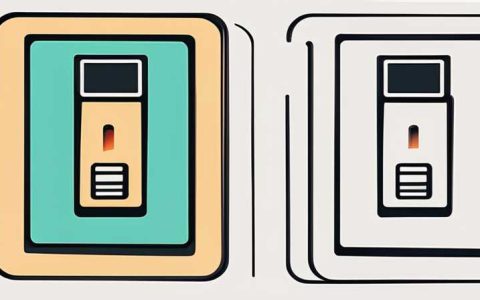
Solar watches primarily do not function solely on sunlight but require batteries for consistent operation. 1. They utilize solar energy to charge the battery, 2. The battery stores energy for nighttime use, 3. Lack of adequate sunlight necessitates battery support, 4. Batteries ensure reliability during low light conditions. The intricacies of solar watch technology illustrate that while solar power is a sustainable method for energy storage, batteries play a critical role in ensuring that the watch functions properly in various environments. For example, if a solar watch does not receive sufficient light, the battery provides a necessary fallback to maintain its accuracy and performance.
1. UNDERSTANDING SOLAR WATCH TECHNOLOGY
Solar watches harness light energy through photovoltaic cells located on the dial. When exposed to sufficient light, these cells convert light into electrical energy, which charges the internal battery. This innovative technology eliminates the need for conventional winding or battery replacements, making solar watches an appealing choice for those seeking a more sustainable and low-maintenance option.
The heart of a solar watch lies in its battery. While they convert light into energy, it is crucial to understand that the battery stores this energy for future use. Because the energy produced from light is not always constant, especially in varying light conditions, the battery functions as a reservoir. When the watch is not receiving enough light, whether due to darkness or other obstructions, the battery ensures the watch continues to operate seamlessly, maintaining accuracy and reliability.
2. IMPORTANCE OF ENERGY STORAGE IN SOLAR WATCHES
The ability of a solar watch to store energy is vital for its overall function. Batteries in these timepieces allow them to carry out timekeeping accurately, even when not exposed to direct sunlight. A fully charged battery can provide power for an extended period, ensuring that the watch remains operational even in low-light situations or during nighttime.
Furthermore, energy storage in solar watches alleviates concerns about frequent recharging or the necessity to keep the watch in direct sunlight continuously. With a properly functioning battery, users do not have to worry about the watch becoming nonoperational due to lack of exposure to light. Extended battery life contributes to user satisfaction, as it eliminates the need for regular maintenance and enhances the convenience of ownership.
3. CHALLENGES WITH SOLAR POWERED BATTERY SYSTEMS
Despite the advantages of solar technology, these systems are not without challenges. One significant issue arises when solar watches are left unattended for prolonged periods or stored away in dark environments. In such cases, the battery may deplete over time, leading to inaccurate timekeeping or potentially causing the watch to stop working altogether. Regular exposure to light is necessary to keep the battery charged adequately.
Additionally, the efficacy of the photovoltaic cells can vary depending on external factors such as weather conditions. Overcast days or lack of sunlight can significantly limit the amount of energy converted to electrical power, influencing the watch’s performance. As such, relying solely on solar energy without adequate backup can lead to situations where the watch is rendered non-functional. A quality battery, therefore, is indispensable to maintain functionality during these periods.
4. ENVIRONMENTAL IMPACT AND SUSTAINABILITY
Solar watches represent a significant advancement in sustainable technology. By utilizing solar energy as a primary power source, they reduce dependence on traditional batteries, which often contain harmful materials that can pollute the environment during disposal. However, despite their ecological benefits, the batteries remain an essential component, as they allow solar watches to function in a broader range of scenarios.
In terms of sustainability, the integration of rechargeable batteries also plays a crucial role. They can be designed to last many years, minimizing waste associated with disposable batteries. Moreover, advancements in battery technology have led to the development of more efficient and eco-friendly batteries, thereby enhancing the environmental benefits of solar watches. These changes are progressively addressing issues of sustainability, blending modern technology with eco-conscious practices.
5. THE FUTURE OF SOLAR WATCHES AND BATTERY TECHNOLOGY
As advancements in solar and battery technology continue, the future of solar watches looks increasingly promising. Increased efficiency in photovoltaic cells allows for better energy capture even in low-light situations, possibly reducing the amount of battery power needed to maintain proper function. This development could revolutionize solar watch design, leading to models with extended operational periods without reliance on traditional batteries.
Further research into battery technology could yield even more efficient solutions, such as lighter, longer-lasting, and more sustainable batteries. This evolution would not only improve the performance of solar watches but also contribute positively to environmental issues associated with battery production and disposal. As such, the synergy between solar cells and battery technologies is crucial for developing the next generation of timepieces that are efficient, sustainable, and capable of functioning reliably in various conditions.
FREQUENTLY ASKED QUESTIONS
HOW LONG CAN A SOLAR WATCH GO WITHOUT SUNLIGHT?
The duration a solar watch can function without sunlight largely depends on the battery capacity and the specific model of the watch. Typically, a fully charged solar watch can last anywhere from three to six months without exposure to light. Some high-quality models boast energy reserves that can extend this timeframe, allowing users more flexibility. However, if the watch has been stored in complete darkness for an extended period, it may eventually lose its charge, requiring sunlight exposure to recharge. Regularly wearing or storing the watch in a well-lit area helps ensure optimal performance.
HOW CAN YOU TELL IF A SOLAR WATCH IS RUNNING LOW ON POWER?
Most solar watches provide indicators signaling low battery power. This may manifest as inaccurate timekeeping, irregular movement of the second hand, or warnings like flashing lights, depending on the model. Some advanced models are equipped with energy reserve indicators that provide real-time data on battery performance. Regular maintenance checks can also help in recognizing when the watch needs to be recharged. To prolong the battery’s life, it is advisable to expose the watch to adequate sunlight whenever possible, particularly after prolonged use in low-light conditions.
CAN THE BATTERY IN A SOLAR WATCH BE REPLACED?
Yes, the battery in a solar watch can be replaced, although the process may differ from traditional quartz watches. Professionals should always handle this type of protocol, as mistakes during replacement could damage the delicate internal components of the watch. It is recommended to follow manufacturer guidelines for battery replacement to maintain warranty coverage and ensure the longevity of the device. When the watch experiences battery issues, consulting an authorized service center is advisable to guarantee that the correct procedures and specifications are upheld.
The relationship between solar watches and batteries is intricate yet essential, serving to enhance the robustness and reliability of timekeeping for users. While solar technology is empowering the world towards sustainable alternatives, the necessity for batteries is undeniable, ensuring uninterrupted functionality of the watch. As society transitions towards more eco-friendly solutions, the continuous innovation in solar technology and battery systems will play a pivotal role in shaping the future of watches. Manufacturers are likely to invest in further advancements, offering even greater energy efficiency, longer battery life, and high sustainability standards, promoting a blend of convenience, style, and environmental consideration in every solar watch. Therefore, understanding the essential role of batteries alongside solar technology can help consumers make informed choices when investing in these timepieces, ultimately fostering a culture of sustainability and responsible consumption.
Original article by NenPower, If reposted, please credit the source: https://nenpower.com/blog/why-do-solar-watches-need-batteries/











